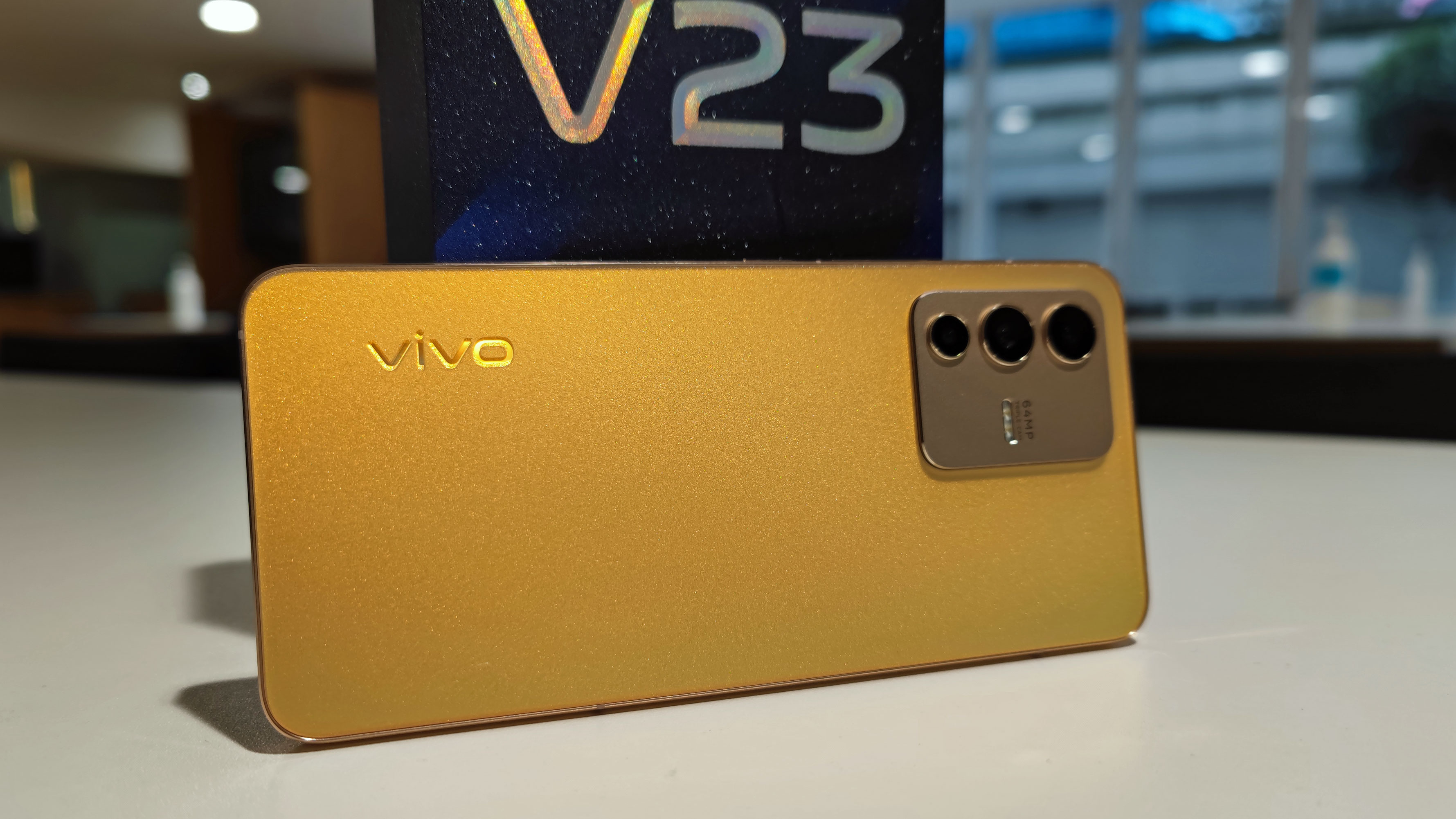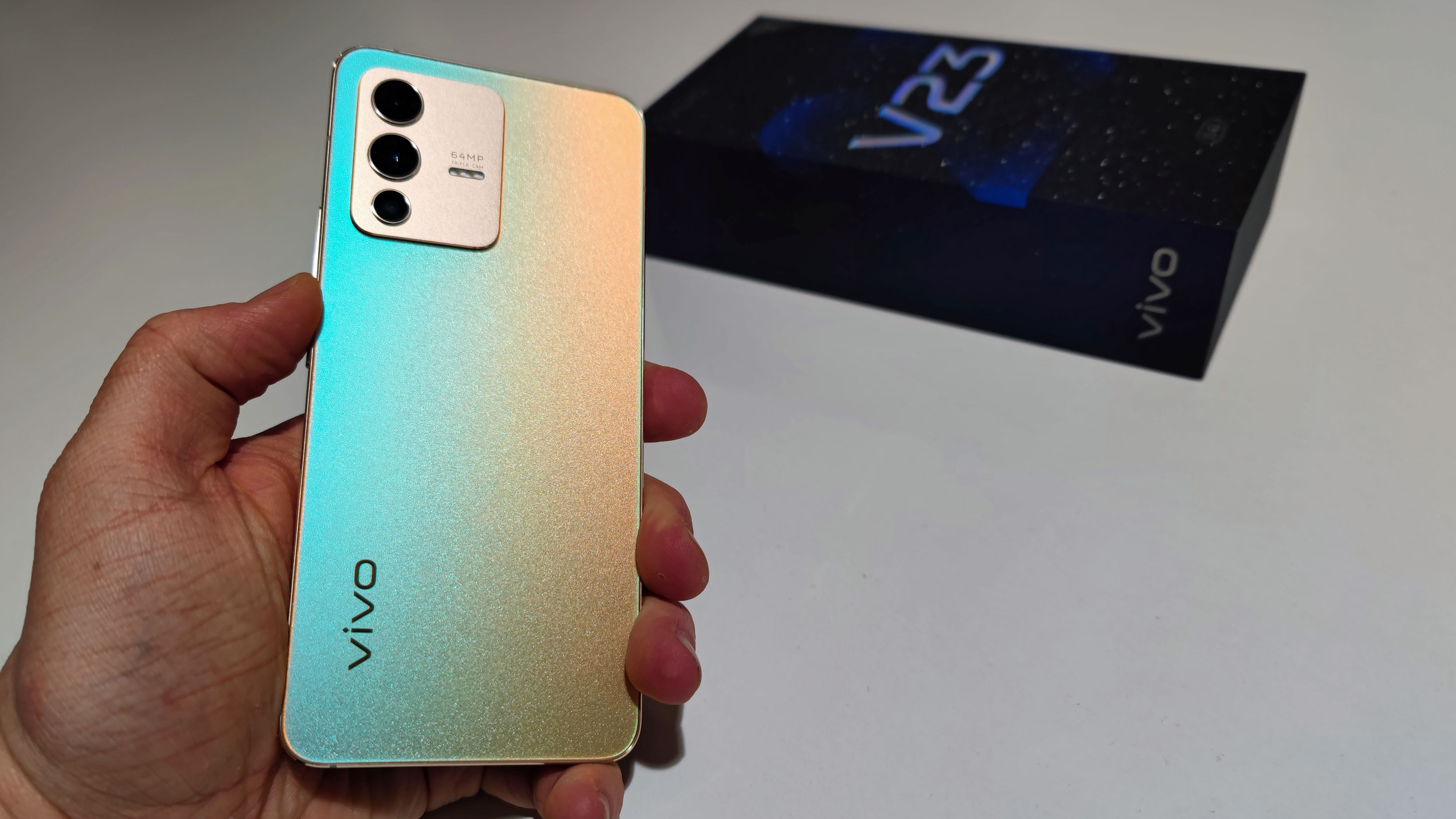Vivo's beautiful new mobiles could be the best camera phones for selfies (original) (raw)

(Image credit: Future)
If you're a fan of using your camera phone for taking selfies, Chinese smartphone brand Vivo should be on your radar. In 2021 its Vivo V21 was one of the best mobiles we tested for selfies, thanks to its 44MP main camera, but now the Vivo V23 and V23 Pro are here to steal that crown.
Launched during the CES 2022 tech show, these two new devices look like solid mid-range Android phones, although we don't yet know their prices or where they'll be available; however, we've got their specs, and images of the handsets, and they're enough to get us intrigued.
- Check out our initial Vivo V23 review here
The unique selling point of both mobiles is their front-facing cameras. Both phones have two front-facing snappers, with a 50MP main camera paired with an 8MP ultra-wide for wide-angle selfies that take in groups of people or sweeping vistas. That 50MP camera is the highest-resolution selfie sensor we've seen on a globally-launched smartphone (the Moto Edge X30 beats it, but that only went on sale in China).
It's not just about the camera hardware, either, as Vivo has also detailed a few ways its software makes selfies even better. You'll be able to record 4K video on the front camera, a feature that few mobiles offer, and one mode lets you record video that's automatically 'beautified', in a similar way how Portrait mode works on stills.
Apparently, the phones make bokeh background blur look better, with light flares and more natural-looking blur to better emulate depth effects from camera lenses.
The Vivo V23 and V23 Pro front-facing snappers sound good on paper then, but we'll need to test them out – and take some selfies with them – to see just how good they are.
The rest of the Vivo V23 and V23 Pro specs

(Image credit: Future)
As for the rear cameras, the Vivo V23 has a 64MP main snapper joined by an 8MP ultra-wide and 2MP macro cohort, while the Pro has the same pair of auxiliary cameras but a 108MP main one. Much of the aforementioned selfie is also available for the main cameras.
Sign up for breaking news, reviews, opinion, top tech deals, and more.
Both phones have FHD+ 90Hz displays, but while the standard handset has a 6.44-inch display, the Pro has a 6.56-inch one that curves at the edges. Both have notches that house the front cameras.
The handsets both charge at 44W, which is fairly snappy, although some phones are faster. The Vivo V23 has a 4,200mAh battery, while the Pro's is slightly larger at 4,300mAh, but since that handset has a bigger screen we don't imagine there would be much of a difference in terms of battery life.
Both devices use MediaTek chipsets, with the V23 using the Dimensity 920, and the V23 Pro using the more powerful Dimensity 1200, and both are 5G-compatible. Each handset comes in two configurations – 8GB RAM and 128GB storage or 12GB / 256GB, and both run Funtouch OS 12, which is Vivo's fork of Android 12.
The phones will be available in two colors – one is your standard black, but the other is a lovely eye-catching gold. It's a sparkly glittery gold too, which looks almost blueish in certain lights – we've had some brief hands-on time with this version, and we can confidently say it's one of the most beautiful smartphones we've ever used.
The Vivo V23 and V23 Pro are two of the few smartphones we've seen launch at CES 2022 – most companies tend to save their new handsets for MWC 2022 in February, which is more smartphone-focused event – and with those selfie specs the pair could end up being our favorites at the show.
Tom Bedford was deputy phones editor on TechRadar until late 2022, having worked his way up from staff writer. Though he specialized in phones and tablets, he also took on other tech like electric scooters, smartwatches, fitness, mobile gaming and more. He is based in London, UK and now works for the entertainment site What To Watch.
He graduated in American Literature and Creative Writing from the University of East Anglia. Prior to working on TechRadar, he freelanced in tech, gaming and entertainment, and also spent many years working as a mixologist.